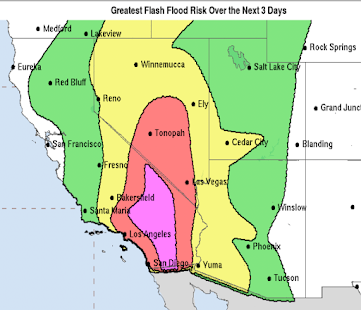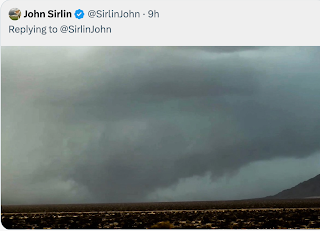Sage Advice from President Obama
Excerpted from an interview with President Obama by The National Journal. Emphasis mine.
NJ You mentioned energy as an area. On the other hand, of the 20 serious Republican Senate candidates who have taken a position, 19 have said that the science of climate change is either wrong, inconclusive, or flat-out fraudulent. I’m wondering, given that, how you react to that, and also if you would be comfortable having the issue of carbon emissions ultimately dealt with by EPA, an approach that I think you’ve always viewed as second and not the preferable one. But given where Republicans are on the science of climate change, can you see any prospects for action on that, and are you comfortable with EPA being the ultimate arbiter of how we deal with it?
This is exactly right. There are plenty of good reasons to develop energy sources that are less expensive than what we have now. I was hoping that when President Obama first proposed a "stimulus" this would be what would result. Unfortunately, that did not occur. That said, smart investments in energy innovation and development could pay off big, not just for the United States, but also for the third of the world without access to reliable, affordable energy.
Hat Tip: Roger Pielke, Jr.
NJ You mentioned energy as an area. On the other hand, of the 20 serious Republican Senate candidates who have taken a position, 19 have said that the science of climate change is either wrong, inconclusive, or flat-out fraudulent. I’m wondering, given that, how you react to that, and also if you would be comfortable having the issue of carbon emissions ultimately dealt with by EPA, an approach that I think you’ve always viewed as second and not the preferable one. But given where Republicans are on the science of climate change, can you see any prospects for action on that, and are you comfortable with EPA being the ultimate arbiter of how we deal with it?
OBAMA I think some of the rhetoric you’re hearing on the campaign trail has to do with politics. Again, there’s a bracing reality that hits you when suddenly you’ve got responsibilities on the governance side. I do think that given the weakness of the economy, the American people are skeptical about taking any steps that cost too much or are perceived as reducing job growth. I think on the other hand, when you talk to the average American they are also very mindful that we can’t keep on sending billions of dollars to other countries in terms of foreign oil, that it’s bad for our national security and it’s bad for our economy. What’s also true is that most of the steps that we can take for our national security, for our energy independence, for our economy are ones that would have the side benefit of dealing with climate change. So my approach to Republicans would be to say, "Regardless of what you think about climate change, here are a bunch of things that are smart to do. It will save consumers money, it will save the country as much money going into foreign oil imports, so let’s concentrate on things that we just know are smart to do." If we do that, we can probably get a quarter of the way there in terms of where we need to be in terms of carbon emissions. The other thing we need to do is to make investments in new energy sources, clean-energy sources, because the unit costs for clean-energy [sources] are still higher than they are for traditional fossil fuels. I had a group of businessmen in here led by Bill Gates that said, "Probably the most important thing we might be able to do right now is to triple our R&D budget for energy," because right now it’s about a third of what the NIH gets for health research. Why not boost this so that we can make faster strides? Even when you talk to somebody like Steven Chu, my Energy secretary, who knows the science of climate change and takes it very seriously, as do I, he’s the first one to acknowledge that we’re going to need some transformative technologies in order for us to get all the way to where we need to be on climate change. The point is that there’s things that we can do short-term on that don’t require you to perfectly agree on the science of climate change in order for you to think that it’s beneficial for Americans long-term.
This is exactly right. There are plenty of good reasons to develop energy sources that are less expensive than what we have now. I was hoping that when President Obama first proposed a "stimulus" this would be what would result. Unfortunately, that did not occur. That said, smart investments in energy innovation and development could pay off big, not just for the United States, but also for the third of the world without access to reliable, affordable energy.
Hat Tip: Roger Pielke, Jr.




Comments
Post a Comment